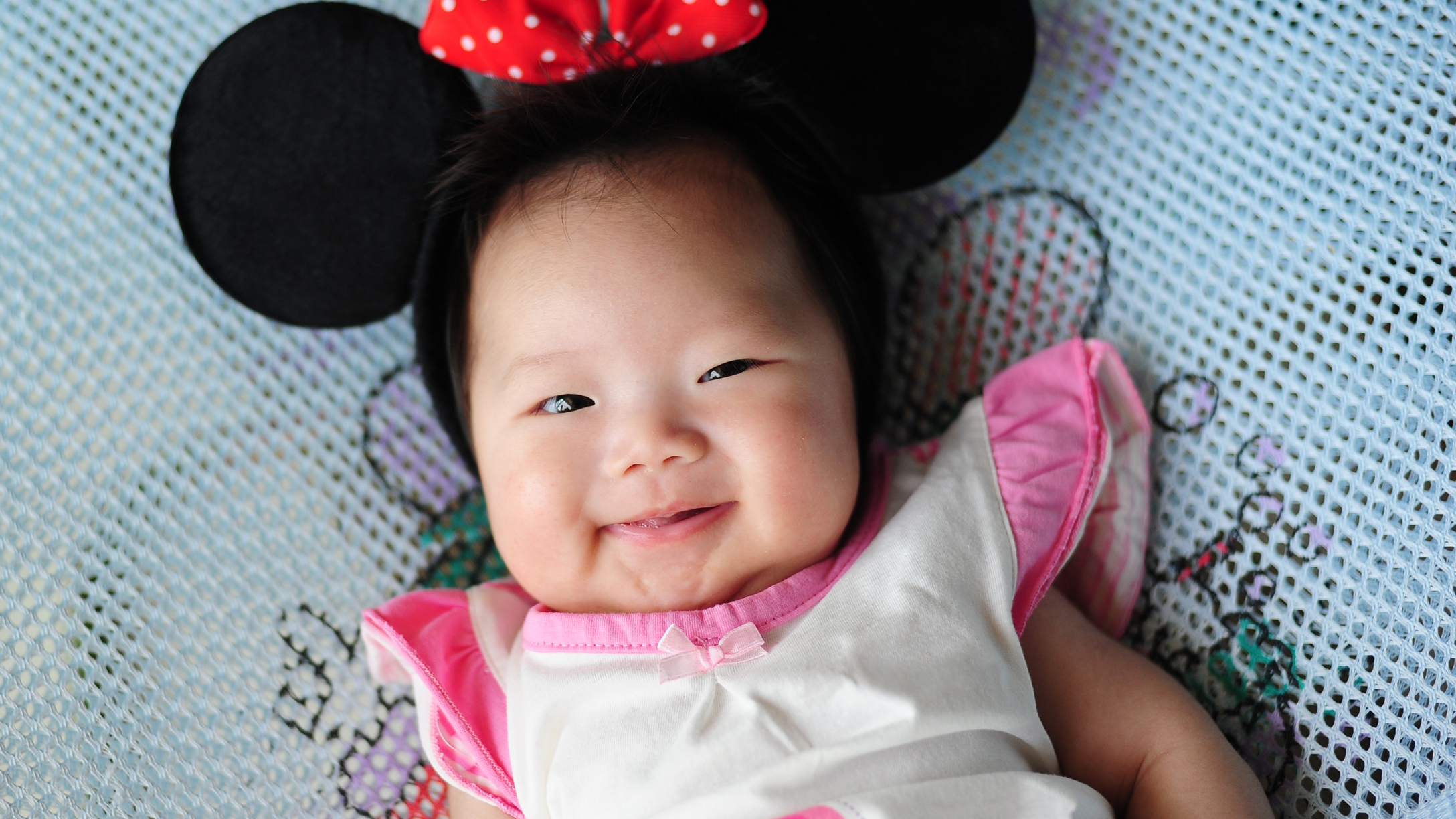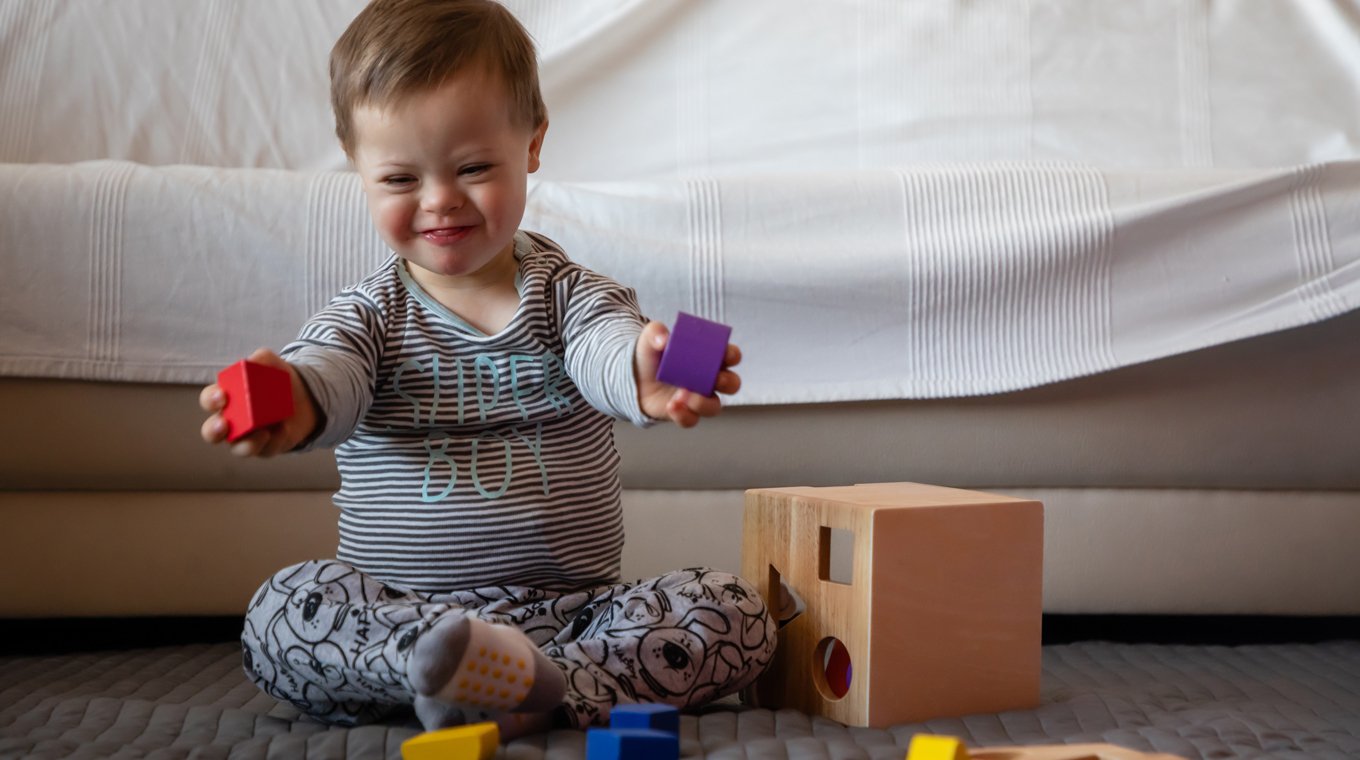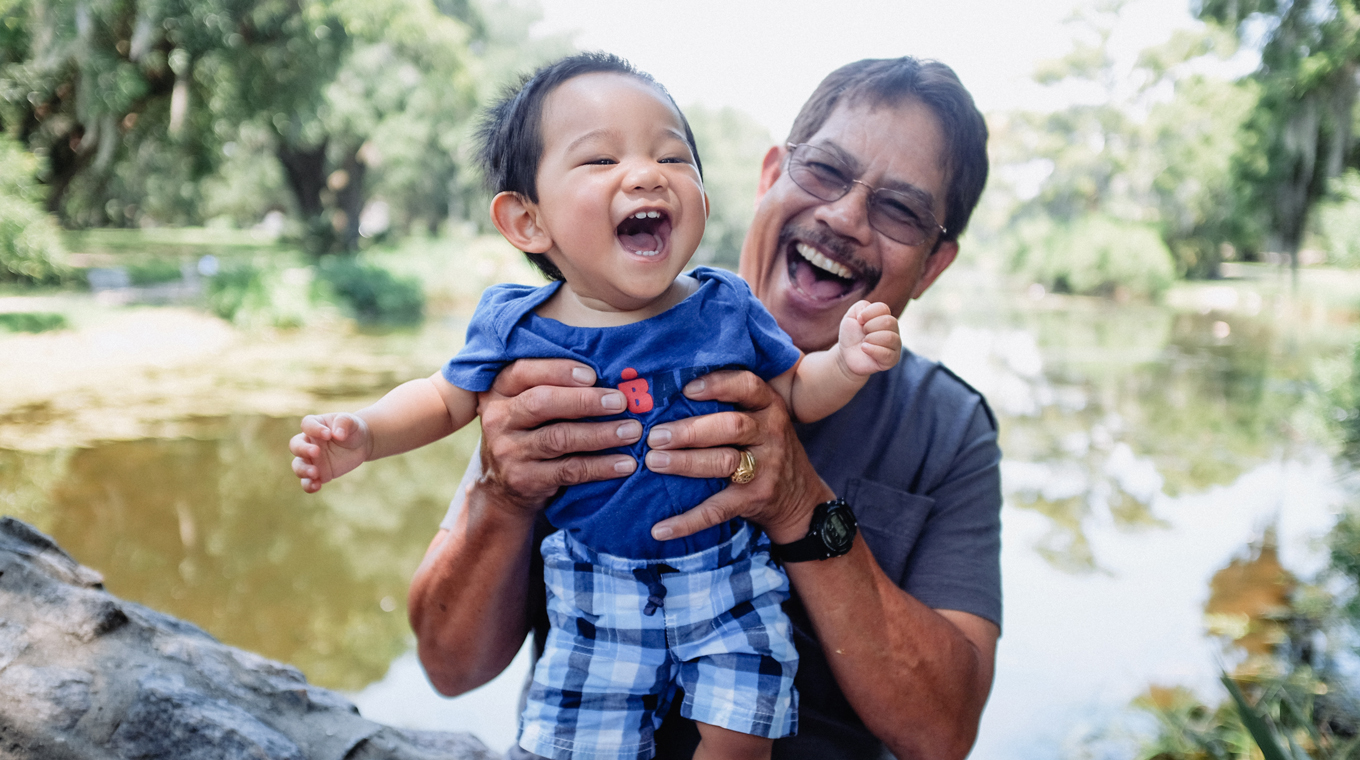
In this article
The first year of your baby’s life is an important one for their cognitive development. According to the Urban Child Institute, an infant’s brain doubles in size between birth and age 1 — and at least some of the billions of neural connections that form in that time happen through playful exploration of the world around them.
Why playtime for your baby is important

“Activities involving different parts of the brain help those brain areas connect,” Dr. Sherry Sellers Vinson, a developmental pediatrician at the Meyer Center for Developmental Pediatrics at Texas Children’s Hospital, explained to Everyday Health. “Playtime entices children to use language, nonverbal problem-solving, and motor areas during fun activities, which cause nerves to fire together and thus wire together for solidified skill building.”
That might sound complicated, but playtime doesn’t have to be. Your baby doesn’t necessarily need fancy toys or games to reap the benefits. Almost any activity that gives them an opportunity to interact with their environment can be considered playful with the right stimulation.
“It’s hard to imagine when an infant or a toddler isn’t playing,” Catherine Tamis-LeMonda, a professor of applied psychology at New York University, told the New York Times. “I don’t like it when scientists think children are playing only when they sit down with some toys. Almost all the learning that goes on in the first years of life is in the context of exploration of the environment.”
The benefits of playtime for baby

Twenty20
It fosters curiosity
Play is part of how your baby learns about the world around them. Everything is new to them, so each sound, sight, smell, or touch is a new piece of a giant puzzle they’re trying to put together. Their first experience with gravity, for example, may be repeatedly picking up a toy and dropping it to see what happens.
Supervised free play — where your baby has an opportunity and a safe space in which to explore and experiment with different objects, such as blocks, balls, and stuffed animals — is a great way to nurture kids’ natural curiosity. It also encourages both creative and critical thinking.
“I think playtime is vital in order for imagination to develop,” Jamie Kaufman, who has a young son, told Mom.com. “And the development of imagination is an important part of being a critical thinker/problem-solver.”
It helps with speech and language learning
It may be a few years before your little one is able to speak in full sentences, but language learning actually starts well before their first birthday, and playtime is a good way to develop it. According to KidsHealth.org, playful “baby talk” — like repeating your baby’s coos and gurgles back to them — can help teach important communication skills. In a way, those are their first conversations with you.
Talking, reading, and singing to your baby also help nurture their understanding of words and language. Music, in particular, has been shown to boost babies’ brain development. In one 2016 study from the University of Washington’s Institute for Learning and Brain Sciences (I-LABS), researchers found that babies who participated in musical playtime were better able to process speech sounds and rhythms afterward.
“Decades of research on how and what babies learn demonstrates that babies absorb information from a wide range of stimuli in their environment at an amazing speed,” study author Christina Zhao, a research scientist at I-LABS, told CBS News at the time. “We know that actively engaging in language interactions can help them learn words more quickly. And here we demonstrated that actively participating in music may be another important experience that can influence infants’ brain development and help them learn.”
It kickstarts their social-emotional development
According to the American Academy of Pediatrics’ HealthyChildren.org website, “Playful learning can start with a baby’s first smile.” The AAP says smiling back “is a form of play that teaches a baby a critical social-emotional skill: ‘You can get my attention and a smile from me anytime you want ― just by smiling yourself.'” It also may be helpful to make funny expressions for your baby to observe and imitate, so they learn to read and interpret faces.
Later on, when they start playing with or alongside other kids, they’ll learn additional social skills such as collaboration, compromise, and even empathy.
It builds motor skills
In their first year alone, babies go from not being able to hold up their own heads to rolling over, crawling, and even standing up and taking their first steps. Playtime can help them hit these important milestones by building motor skills.
Object play with toys, rattles, and stuffed animals, for example, can help babies develop hand-eye coordination and stimulate their sense of touch. And interactive songs like “Head, Shoulders, Knees, and Toes” or “Patty Cake” can help with body awareness and dexterity.
It strengthens your bond
Playtime is a great way to connect with your baby. In I-LABS’ study, Zhao and her team found that musical activities were most effective when parents guided their kids through them. “We think babies learn the best when engaged in interactions with their parents,” Zhao told The Week. “Parents are babies’ first and favorite toy.”







